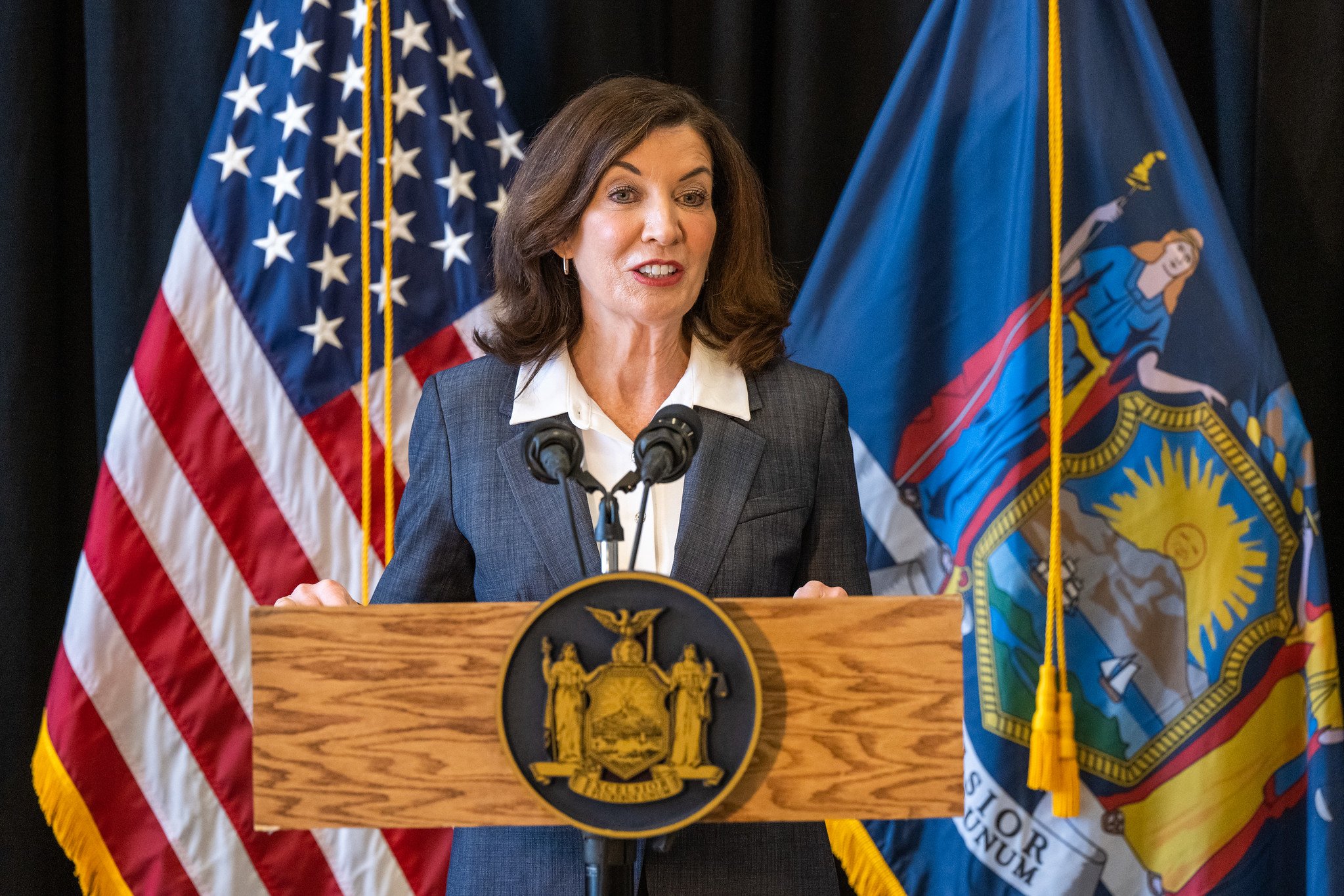Judge recertification bill hits Hochul’s desk
/By Jacob Kaye
In September 2020, nearly every judge over the age of 70 was denied their application for recertification as the Office of Court Administration grappled with a budget crisis.
Forty-six of 49 senior judges were cut loose by the OCA and although many were offered the opportunity to reapply in the spring of 2021, a bill was drafted in an attempt to make sure the mass layoffs never happen again.
That bill, sponsored by State Senator Brad Hoylman and co-sponsored by Queens Senators Leroy Comrie, Michael Gianaris and John Liu, among others, was delivered to Governor Kathy Hochul in the final hours of 2021 and is now awaiting her signature.
Under the bill that was sent to Hochul on Dec. 30, one word of the state’s judicial law would be changed in a way that the bill’s supporters say would make judge recertification essentially automatic.
The state’s judiciary law currently states that judges over 70 years old “may” be recertified if they’re proven to be mentally and physically fit and if there is a need for them on the bench. If signed into law, it will be amended to read that judges “shall” be recertified if they meet both qualifications.
Currently, whether or not a judge’s application for recertification – all judges over the age of 70 must apply for recertification every two years until the mandatory retirement age of 76 – is accepted, is almost entirely up to the OCA.
“We hope that the governor keeps her promise that she is going to be independent, that she is going to look at all of the issues, and that she realizes that having an independent judiciary should be a priority,” said Queens Supreme Court Justice Carmen Velasquez, who also serves as the president of the Association of Supreme Court Justices of the State of New York.
The bill has received widespread support from members of the legislature – it passed both the Senate and Assembly unanimously – and from judges, attorneys and others in the legal community. Over 30 retired Appellate Division judges have expressed support for the bill, as well as a handful of retired attorneys, law professors and bar associations, including the Macon B. Allen Black Bar Association, Latino Lawyers Association of Queens County and the New York City Bar Association’s Council on Judicial Administration.
When the bill was first passed in the legislature, Comrie told the Eagle that among his hopes for the bill was the hope that it would help eat into the backlog of cases made worse by the pandemic.
“There's a major backlog of cases from the pandemic, and even pre-pandemic, because there haven't been enough hours for judges to handle everything that's been going on,” Comrie, a co-sponsor of the bill, told the Eagle in June. “It only made sense to me that we have as many experienced judges, especially those that had good records, to be able to stay and try to help address this backlog of cases.”
“As long as judges have a good record, they should be able to get the recertification if they desire to keep going,” he added.
As a result of the austerity measure, Queens temporarily lost over half a dozen judges.
OCA spokesperson Lucian Chalfen said that the OCA had “made our position clear to the Governor’s office regarding this bill,” and declined to expand further on the OCA’s position.
Proponents of the bill say that in addition to keeping the judiciary independent, the bill would benefit litigants and other court users by keeping judges who have built up institutional knowledge on the bench.
A senior judge who was one of the 46 judges cut by the OCA in 2020 and who requested anonymity out of fear of reprisal, told the Eagle that they hope the bill passes, if only to prevent similar mass layoffs from ever happening again.
“The OCA should not have total unbridled discretion to repeat what they did and cause the damage that they caused, probably unintentionally and prematurely,” the judge said. “The OCA has unbridled power, and was able to do a lot of damage to the judiciary by doing what they did.”
“What it does is it attacks the independence of the judiciary,” the judge added. “The people elected me, and there's a provision that says I can be certified to continue because of my experience if I'm needed, if I'm healthy and if I still have the mental capacity to do the job. It always was automatic and there has to be some recognition or some consideration of not repeating what happened on Sept. 19 2020 – that can't happen again.”
Because the bill was delivered to Hochul while the legislature was out of session, the governor has 30 days to sign the bill into law or veto the bill. If she takes no action during the 30 day period, the bill will automatically be vetoed.
Avi Small, a spokesperson for Hochul, said that “Governor Hochul is reviewing the legislation.”




